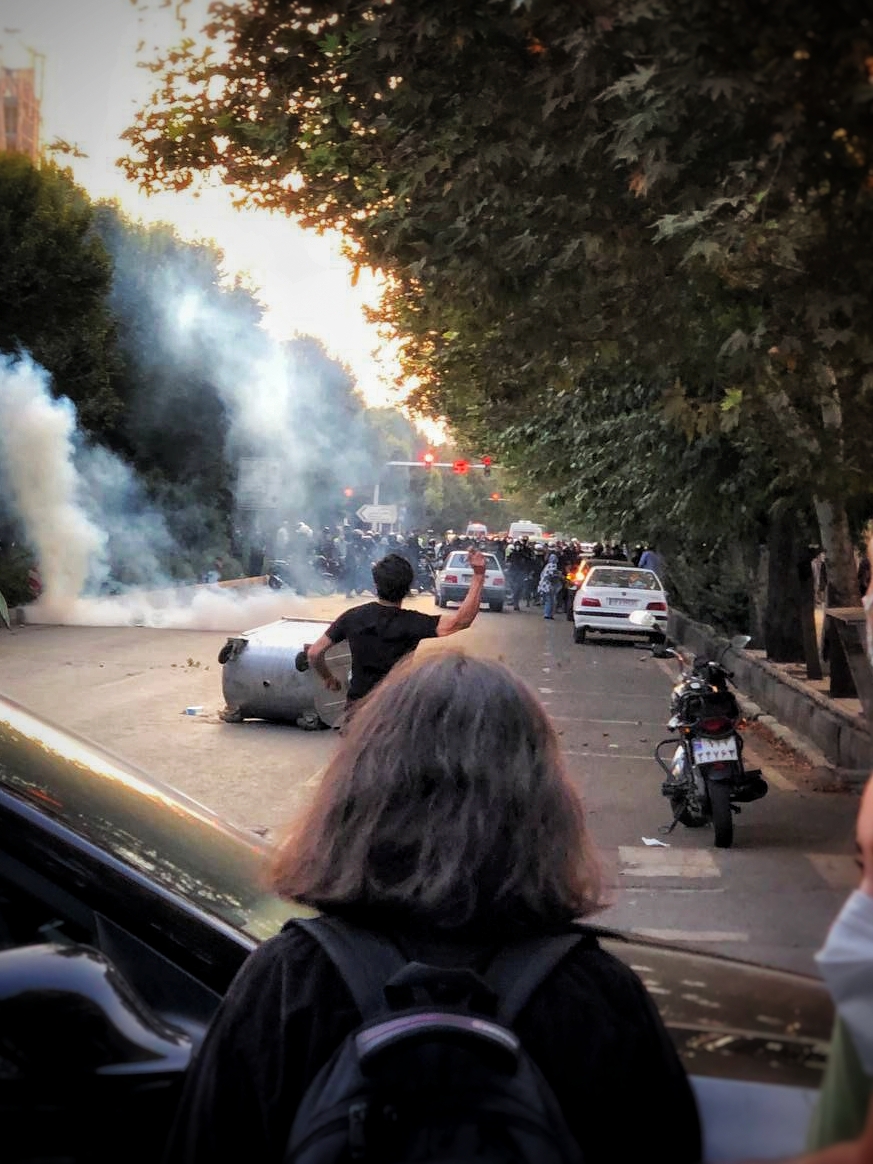(October 13, 2022 / JNS) The Biden administration found itself in another awkward diplomatic moment of its own making. By continuing its nuclear talks with Iran, which include discussions on easing sanctions, the administration is ignoring the protests of the Iranian people against the same regime.
The protests erupted after the death of 22-year-old Mahsa Amini, who died nearly a month ago after suffering brutal police violence for breaking the regime’s strict headgear law.
The administration has no excuse to let down the brave Iranians who demonstrate against the regime. President Joe Biden’s Iran policy empowers a human rights violator while empowering and emboldening a leading adversary of the United States and the world’s leading state sponsor of terrorism. Biden’s approach of offering repeated concessions to Iran in the hope that it will agree to a deal that won’t even halt its nuclear ambitions is a dangerous course. To continue negotiations with the Iranian regime at a time when it is brutally suppressing the Iranian people is dangerously naïve.
If the Biden administration is serious about helping the people of Iran, it should stop negotiations and reinstate the “maximum pressure” campaign that was successfully instituted under former President Donald Trump. This policy rightly notes that the various threats posed by Iran – from its nuclear ambitions to its support for terrorism to its human rights abuses – emanate from the regime’s ideological worldview.
The Biden administration’s response to the current wave of protests has been to sanction Iran’s “morality police,” which enforces the Iranian government’s strict interpretation of Islamic law. For Iranians, the Biden administration’s decision probably makes no sense. It is clearly intended to generate a talking point for friendly media, indicating that the White House stands with the people of Iran. The administration’s general policy toward Iran sends a different message. He ignores the plight of the Iranian people as he pursues negotiations with the regime.
This is not the first time that the Iranian people have taken to the streets to be abandoned by a leftist US administration. In 2009, before the Arab Spring took shape in the Middle East, Iran faced its own popular uprising during the Green Revolution. Then-President Barack Obama, who called for the overthrow of longtime leaders and democratic elections during the Arab Spring, mysteriously did little about Iran. His motive, it became clear several years later, was to curry favor with the Iranian government into accepting its Joint Comprehensive Plan of Action, the Iran Nuclear Deal, which included significant sanctions relief.
Today’s protests come at a potentially crucial time, especially with Iranian oil workers joining the protests chanting ‘we will destroy everything we have built’, jeopardizing the main economic lifeline of the regime.
Human rights are not in tension with American national security, but are an integral part of its guarantee. Creatively and coherently addressing this aspect of national security helps us achieve peace for ourselves and for others. This is why, for example, the Jackson-Vanik Amendment, which instituted tariffs on Soviet grain in exchange for allowing its Jews to leave the country, marked an important symbolic point in the Cold War. He demonstrated that the Soviet system was incapable of providing a free and prosperous future for its citizens.
The Trump administration has demonstrated that human rights must be both integrated into comprehensive national security policy and part of the consistent application of that policy. For example, the Trump administration has sanctioned Chinese officials and their proxies for human rights abuses in Xinjiang, and insisted on calling them “genocide.” The administration has taken similar action in Hong Kong. And, of course, there was the “maximum pressure” campaign against the Iranian government. These and other examples illustrate that protecting human rights is not only a morally correct course of action, but also a strategically necessary one, especially when confronting an adversary.
The most important questions are who America stands up to and what America stands for. When it comes to its approach to Iran, the Biden team is tragically unable to answer either.
Jacob Olidort is a Middle Eastern historian who served as an adviser in the office of former Vice President Mike Pence. He is currently director of the Center for American Security and the Center’s Middle East Peace Project at the America First Policy Institute.

